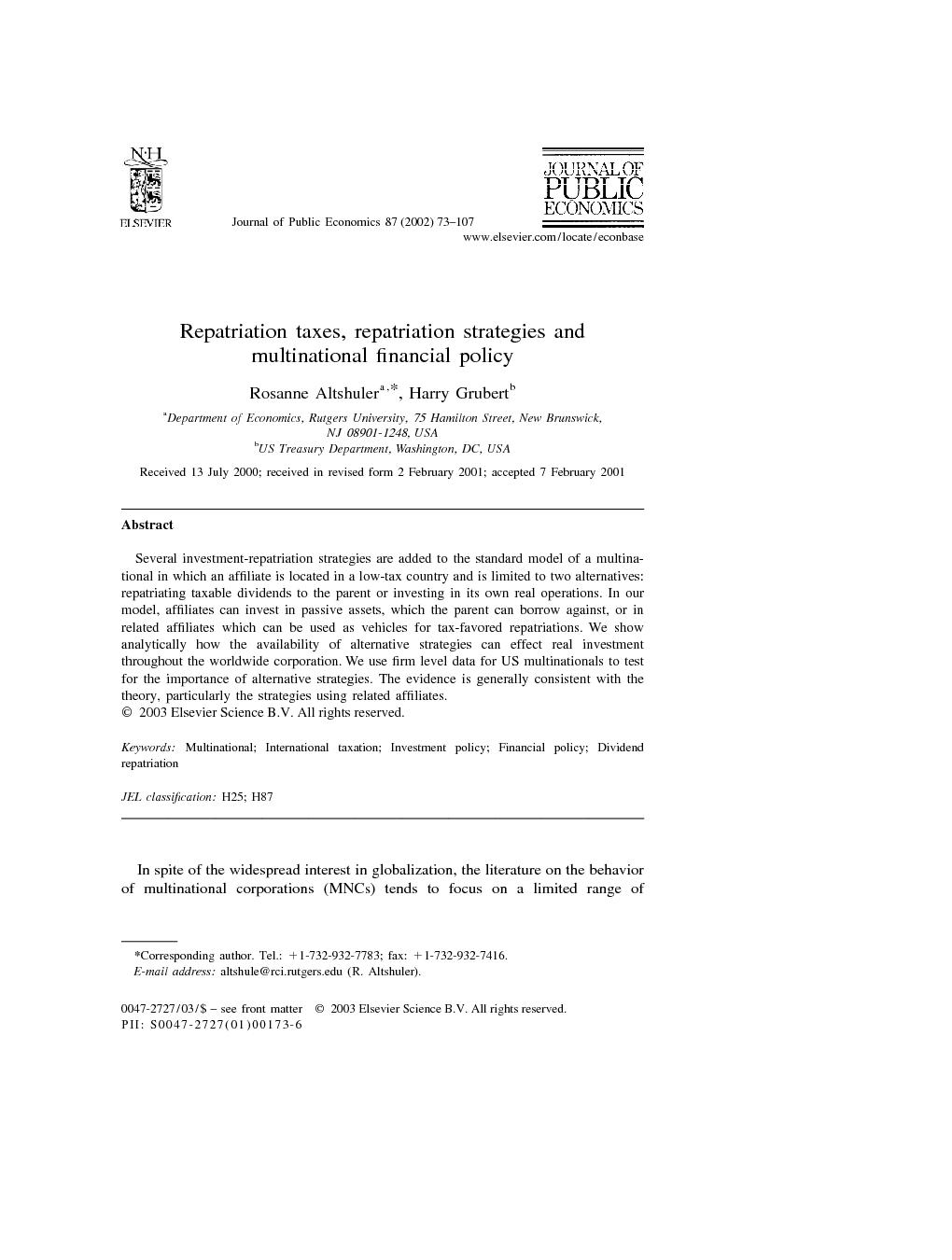ترجمه فارسی عنوان مقاله
مالیاتهای عودت داده شده، استراتژی عودت و سیاست مالی چند ملیتی
عنوان انگلیسی
Repatriation taxes, repatriation strategies and multinational financial policy
| کد مقاله | سال انتشار | تعداد صفحات مقاله انگلیسی |
|---|---|---|
| 26799 | 2003 | 35 صفحه PDF |
منبع

Publisher : Elsevier - Science Direct (الزویر - ساینس دایرکت)
Journal : Journal of Public Economics, Volume 87, Issue 1, January 2003, Pages 73–107
ترجمه کلمات کلیدی
- چند ملیتی - مالیات بین المللی - سیاست سرمایه گذاری - سیاست های مالی - بازگشت سود تقسیمی
کلمات کلیدی انگلیسی
Multinational,International taxation,Investment policy,Financial policy,Dividend repatriation

